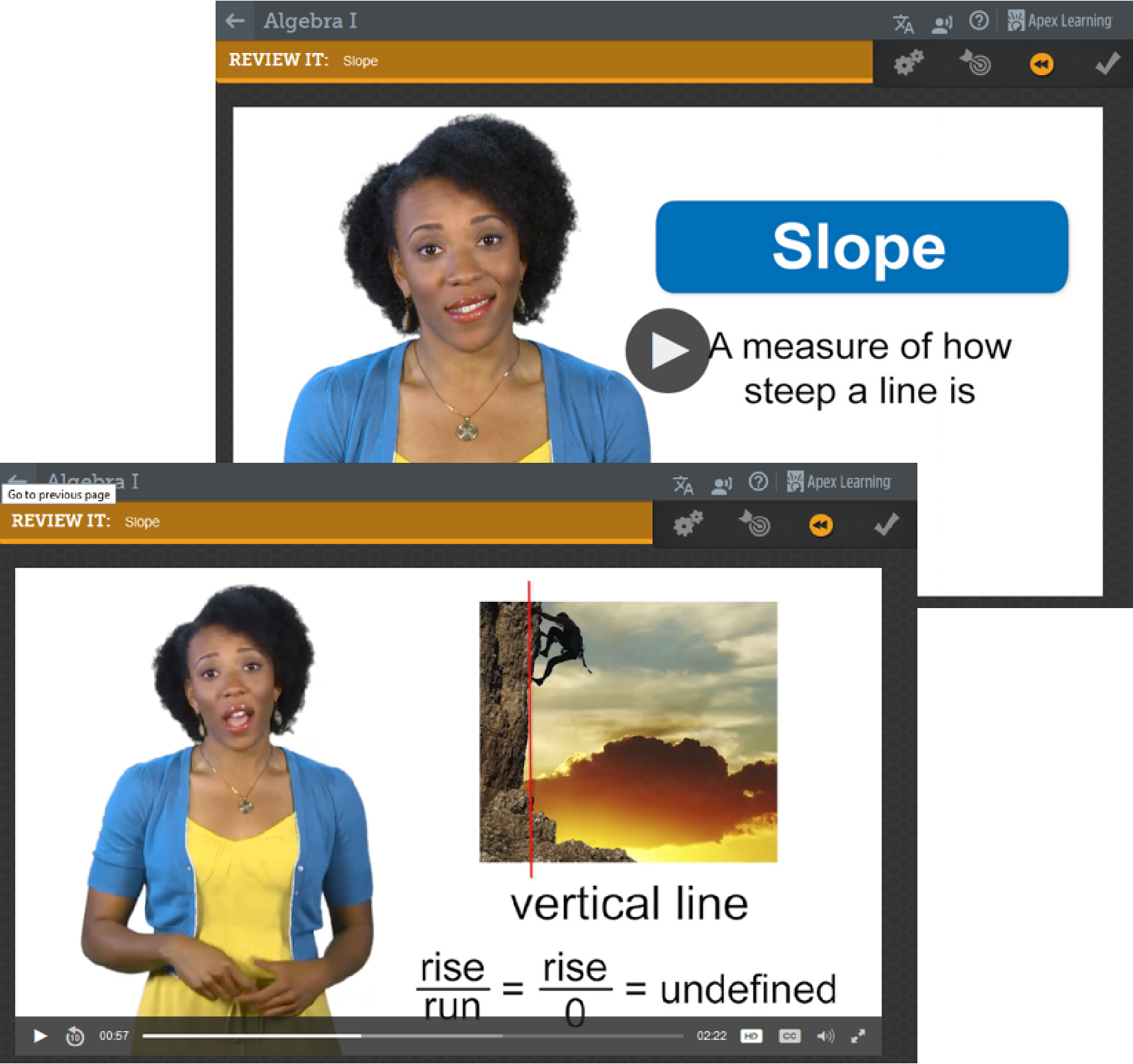Can Apex Learning Detect Cheating - A Look at Integrity
Many students wonder about the measures taken by online learning platforms to keep things fair. It's a common question, really, especially when assessments are involved. People often ask, for instance, if a system like Apex Learning can tell when someone isn't playing by the rules during an exam or assignment. The simple answer, and it's quite clear, is that yes, Apex Learning does have ways to spot when things might be amiss. This is, you know, a very important part of how they make sure everyone's work is their own.
Maintaining a fair and honest learning environment is, in some respects, a top priority for any educational institution, whether it's a traditional school or a virtual one. For online platforms, this often means putting in place specific tools and practices to uphold academic honesty. It's about making sure that the effort students put in truly reflects their own knowledge and skills, which is, actually, what learning is all about. This approach helps to ensure that the credentials students earn truly mean something.
This discussion will, in fact, look into the various methods Apex Learning uses to check for dishonest actions. We'll explore how they monitor student behavior during tests and assignments, and what kinds of things might raise a flag. It's quite fascinating, really, how these systems are set up to promote fairness for all learners. So, let's get into the details of how these systems work to keep things square.
Table of Contents
- Does Apex Learning Detect Cheating - The Short Answer
- How Can Apex Learning Detect Cheating - Monitoring Behavior
- What Does Apex Learning Do to Detect Cheating - Beyond Simple Tracking
- How Does Apex Learning Use Technology to Detect Cheating?
- Can Apex Learning Detect Cheating Through Behavioral Patterns?
- Why Does Apex Learning Focus on Detecting Cheating?
- What Are the Common Cheating Tactics Apex Learning Aims to Detect?
- A Look at How Apex Learning Maintains Integrity
Does Apex Learning Detect Cheating - The Short Answer
To put it plainly, Apex Learning does, in fact, have systems in place to spot dishonest actions. This isn't just a casual guess; it's a clear statement about their operational approach. The goal is to keep the learning process honest and fair for everyone involved. They put a lot of thought into how they can uphold the good name of the work students produce. It's a pretty big deal for them, you know, to make sure the learning experience is sound.
This dedication to honesty is a core part of their educational model. When students know that their efforts are being fairly assessed, and that others are also held to the same standards, it creates a much better environment for true learning to happen. So, yes, the answer to "can apex learning detect cheating" is a firm yes, and it's all part of their commitment to genuine education. They are, you know, quite serious about this.
How Can Apex Learning Detect Cheating - Monitoring Behavior
One of the ways Apex Learning keeps an eye on things is by monitoring what a student does during a test. They might not, for example, track every single website you visit outside of the test window, but they certainly pay attention to whether you are looking at the test itself. More importantly, they can tell if you've clicked away from the test screen. This is, you know, a pretty key indicator.
The thinking here is quite simple: if you are truly focused on an assessment, there's basically no good reason to leave the test page at all. Clicking out, or switching to another window, might suggest that you're looking for answers or some kind of outside help. So, in some respects, this simple action of moving away from the test becomes a very important signal that something unusual might be happening. It’s a rather straightforward way to keep an eye on focus.
This monitoring helps them understand if a student is genuinely engaged with the questions or if their attention is elsewhere. It's about creating an environment where students feel encouraged to rely on their own knowledge, rather than looking for shortcuts. This helps to ensure that the results of the test truly reflect what the student has learned. They are, you know, quite keen on this.
What Does Apex Learning Do to Detect Cheating - Beyond Simple Tracking
Beyond just checking if you've clicked out of a test, Apex Learning employs a wider set of approaches to spot potential dishonesty. They use a collection of different methods, which helps them get a fuller picture of student activity. It's not just one trick, but a combination of things that come together to help maintain academic fairness. This is, you know, pretty comprehensive.
Some of these methods involve what's called "proctoring options." This can include having a real person, someone who is trained for this role, watch over students while they take their tests. This "live proctoring" means that an individual is observing in real-time, much like a teacher might walk around a physical classroom during an exam. This human presence can, in fact, be a very strong deterrent to dishonest actions. It's, you know, a bit like having an extra pair of eyes.
Humphrey, for example, made a point that teachers in a traditional setting can catch students by moving around and watching them during tests. However, as Humphrey also noted, students only have to be careful for a short moment to get away with something. Online proctoring, especially with live observers, aims to extend that period of oversight, making it harder to find those brief opportunities for shortcuts. So, in some respects, it tries to improve on that traditional method.
How Does Apex Learning Use Technology to Detect Cheating?
Apex Learning uses some clever technology to help them in their efforts to maintain academic honesty. It's not just about a person watching; there are also smart computer programs at play. Some of the systems they use for oversight, for instance, make use of what's often called "advanced AI." This isn't science fiction, but rather, programs that can spot patterns and unusual actions. It’s, you know, pretty smart stuff.
These programs are set up to look for things that a human might miss or that happen too quickly for a person to notice. They can process a lot of information at once, which makes them a powerful tool in keeping things fair. This helps to catch things that might suggest someone isn't doing their work honestly. So, it’s, you know, a very important part of their strategy.
Can Apex Learning Detect Cheating Through Behavioral Patterns?
A significant part of how Apex Learning uses technology involves looking at "behavioral analytics" and "work comparison." Behavioral analytics means the system observes how a student interacts with the test. This could involve things like how quickly they type, the way their mouse moves across the screen, or even if their gaze seems to shift away from the screen often, if a webcam is in use. These kinds of small actions can, in fact, paint a picture of whether a student is genuinely focused or possibly distracted by outside materials. It's, you know, quite detailed.
Work comparison is another clever tool. This involves comparing a student's answers or written work against a large database of other submissions, or even against information found online. If a student's answers are very similar to someone else's, or if phrases appear that are identical to published material, it can raise a flag. This helps to spot potential copying or plagiarism. It's a way, you know, to check for originality.
These methods are designed to help identify potential dishonesty. They act as a kind of early warning system. However, it's also true that these tools are not absolutely perfect. They can sometimes flag something that isn't actually cheating, which is why human review often plays a part in the final decision. They are, you know, pretty good at what they do, but not flawless.
Why Does Apex Learning Focus on Detecting Cheating?
The main reason Apex Learning puts so much effort into spotting dishonest actions is to uphold what's called "academic integrity." This phrase basically means keeping education honest and fair. It's about making sure that the grades and certifications students earn truly represent their own hard work and learning. If students could easily take shortcuts, the value of their education would, in fact, be much less. It's, you know, a very fundamental principle.
When academic integrity is maintained, everyone benefits. Students who work hard feel that their efforts are recognized and that they are not at a disadvantage compared to those who might try to cheat. For the educational institution itself, it means their programs and the qualifications they award hold real weight and respect. This helps ensure that an Apex Learning certificate or course completion is seen as a genuine achievement. So, it’s, you know, quite important for everyone.
It's also about preparing students for their future. Learning to be honest and accountable in an academic setting builds good habits that are useful in any career or life path. By making it clear that cheating is not tolerated, Apex Learning helps to foster a culture of personal responsibility and genuine effort. This is, you know, a rather good thing for students.
What Are the Common Cheating Tactics Apex Learning Aims to Detect?
Many students, it's true, look for ways to get through their courses quickly, sometimes by trying to find "shortcuts" or "cheating tricks." These are


